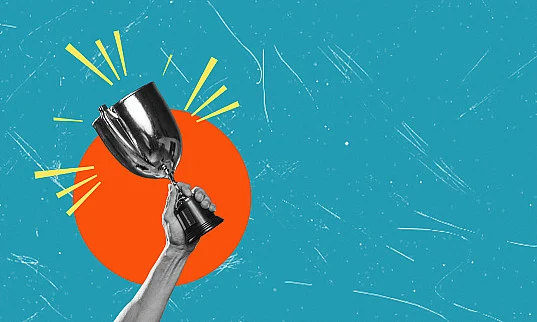The collective disappointment of a nation on our near misses at the 2024 Paris Olympics sheds light on an inescapable aspect of human existence: failure, and our ability to process it.
Only a Boddhisatva can claim to remain unaffected in the face of life’s vagaries on whether it meets one’s expectations or not. And, it is not just grand goals on which we pin our hopes. Caprices of our daily humdrum—a promotion not received, love gone awry, familial discords, inability to meet some elusive weight goal—can chip at our contentment and impact whether we view our lives as successful or not.
And what is success or failure, except our circumstances, the people in them, our self-image, and not meeting some preset expectations?
The terms success and failure are two ends of an infinite spectrum where all of us exist. Would securing a silver medal in the Olympics qualify as a success, or a failure? Would an Olympic gold medalist in an unhappy relationship consider themselves a success, or a failure? Is a company head who treats their employees poorly a success, or failure?
Does one defeat, or triumph, define us in entirety? Can the infinite multitudes of a human life be boxed into the binaries of win or lose?
Some may say, for instance, that a successful relationship means not getting a divorce, staying together, not having fights. However, evidence shows that seems healthy from the outside often hides signs of abuse, toxicity, distance and indifference. Yet, many people to continue staying in an unhealthy relationship, because the alternative, separation, may be deemed a failure by themselves and others.
Such contradictions in our daily relationships goes to show that we can seldom delineate our expectations of ourselves from our social conditioning. Who we are is often a result of where we are.
An existentialist would argue against this deterministic view; Sartre said, “existence precedes essence,” and we have the free will to be authentic beyond social expectations. This is true, yet it is easier said than done.
Our self-image is vulnerable to the onslaught of our environment. Consequently, we end up viewing events, circumstances, and, eventually, ourselves in a positive or a negative light, and label them as such. Such labelling, which is essentially our belief system about ourselves, can have a detrimental impact on our emotional and mental health.
Rigid belief systems and absolutes, such as I must, I should, or I cannot, can lead to long term mental distress. Our emotional response to any event in our life is often a function of the beliefs that we hold. Students feel guilt, shame and regret (consequence or emotional response) about performing poorly in an exam (activating event). Their belief is that to be valued and respected they need to be competent and perfect at everything.
We are each prone to irrational beliefs, which vacillate between the absolutes of success and failure, victory or defeat, right or wrong. Working on these beliefs is likely to lead to a healthier emotional response to the events in our lives. Simultaneously, we also need to be reminded that while events around us affect us, they don’t have to define us.
An understanding of our belief system, of our cardinal traits, may help us process life’s ferments. For instance, if the student believes they are essentially hardworking and have integrity, their emotional response to a poor exam result may be to move on quickly and focus on other opportunities where they can perform better. A strong and positive belief system of their own cardinal traits help them process the activating event in a healthy manner.
Long ago, Aristotle gave the concept of Eudaimonia. While there is an entire philosophical thought to explain the term, in the simplest words it means a life well-lived in accordance with reason. In its loosest translation, and perhaps a rather reductionist one, Eudaimonia also may mean happiness.
If one looks closely, the concepts of success and failure are a rather circuitous route to happiness. While externalities are not in our control, a positive self-belief combined with a value-guided life may indeed cumulate to a life well lived—not successful, or failed, but simply well lived. Aristotle believed that all pursuit was the pursuit of happiness taking different forms, be it the pursuit of money, wealth, or love. None of them are the chief good, but just a means to an end. The chief good is happiness itself.
And the good news is that our happiness is a function of our self-belief, which is in our control.
As Viktor Frankel expressed it in his book Man’s Search for Meaning, “Everything can be taken from a man but one thing: the last of the human freedoms—to choose one’s attitude in any given set of circumstances, to choose one’s own way.”
Shivangi rai is a career social sector consultant, an avid reader, psychology enthusiast and a philosophy noob























